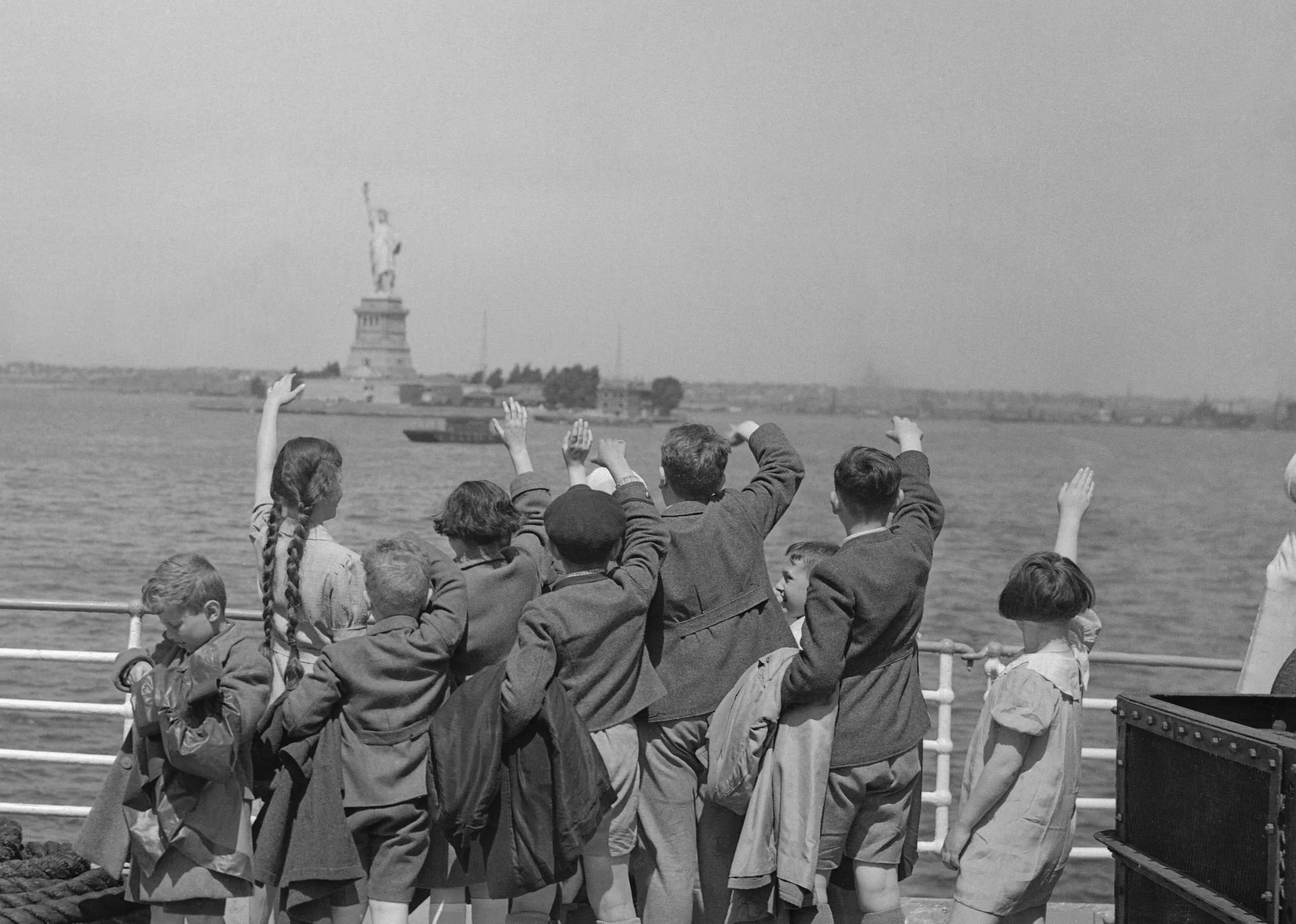Every year since 2016, OHMA has awarded the Jeffrey H. Brodsky Oral History Award to a student whose thesis makes an important contribution to knowledge and most exemplifies the rigor, creativity, and ethical integrity that OHMA teaches its students.
This year our announcement of the winners of this award is bittersweet. Last month, we learned that Jeffrey H. Brodsky passed away at age 49 after battling Parkinson’s disease for the past decade. As we receive the news of his passing, our community has been reflecting on his many important and enduring contributions to oral history at Columbia University and beyond.
For 2023, the selection committee, consisting of OHMA Director Amy Starecheski, Incite Director and OHMA Co-Founder Peter Bearman, and 2022 Brodsky Award-winner Courtney Scott, has chosen three theses to receive prizes. All theses submitted from October 2022-May 2023 were eligible for consideration.
2023 Jeffrey H. Brodsky Oral History Award Winner
2023 Jeffrey H. Brodsky Oral History Award Winner
The winner of this year’s Brodsky Award is Bronte Gosper for her essay, “Collapsing Time: Indigenous Storytellers and the ‘Everywhen.’”
Oral history always happens within a layered temporality - within more linear conceptions of time we often talk about it as a conversation about the past, happening in the present, and oriented towards the future. Bronte’s essay proposes an Indigenous approach to non-linear time and narrative in oral history. She pushes back against traditional uses of Indigenous testimony, particularly in Australia, which have have narrowly focused on Indigenous suffering while placing Indigenous sovereignty in the past and projecting settler sovereignty into the future. Building on the approaches to speculative oral history developed by Taylor Thompson and addressing calls for “liberatory archives” that reject “white time” by Michelle Caswell, Bronte Gosper explores what oral history looks like within the “Everywhen” of Aboriginal people who are epistemologically grounded in the Dreaming. How does oral history work when time is non-linear, and deeply tied to land? Recording oral history in place and in motion, woven throughout everyday life, she demonstrates a deeply anti-colonial oral history practice.
We are also awarding prizes for breaking new ground methodologically to two additional students - Christopher M. Pandza and Rebecca Kiil - who created exceptional work. Each will receive a cash prize of $1500 and be invited to present their work in this year’s Oral History Workshop series, which will explore methodological experiments in oral history.
Bettmann/Getty Images
In “Using Natural Language Processing to Organize and Analyze Oral History Projects,” Christopher M. Pandza does the essential work of introducing oral historians to the possibilities of using Natural Language Processing (NLP) for both organizing and analyzing large collections of interviews. Using the thousands of interviews in the Ellis Island Oral History Project as a case study, he deploys NLP in two quite different ways. First, he creates a process to efficiently extract consistent metadata, previously unavailable, from transcripts. Second, he develops a method to identify topics in the oral history interviews, and uses that tool to address a core question in oral history: How does shared authority work, in practice? By analyzing the frequency with which narrators and interviewers bring up immigration-related topics and/or continue discussions of immigration once they are raised, he is able to show that while both parties are shaping the conversation, in this case interviewers are doing more work to focus the conversation on the project’s research focus than narrators are. Oral historians need more tools to make sense of the stories they record, especially in large collections. Lack of knowledge and expertise as well as ethical qualms have held the field back from deploying qualitative research tools in general, and AI-based tools specifically. By rigorously addressing the potential ethical issues and clearly explaining how these tools can be used, Christopher M. Pandza has made a significant contribution to the field, one which he and others can now build on as these tools rapidly evolve.
Rebecca Kiil’s thesis, “Roots of Silence: How Retracing My Family’s WWII Escape Routes and Bearing Witness to Their Breaking of Long-Held Silences Unexpectedly Led Me to Compassion, an Open Heart, and My Voice,” is a culmination of a decade of work to uncover her family’s World War II experiences fleeing Estonia, and make sense of their intergenerational impacts. She deploys research on intergenerational trauma, embodied memory, and oral history approaches to shared authority to create a multi-genre and multi-media account combining writing, audio, film and “fantasy oral history,” a genre of speculative oral history she created. The thesis is grounded in oral histories with multiple generations of family members, family records (including diaries, photos, and letters), archival research in Estonia and Siberia, and field research along the routes her family took to escape. With the fantasy oral history, Kiil expands recent work on speculative oral history, much of which has been future-focused, into the past. This very personal account of intergenerational memory and trauma provides a detailed account of how memory lives in the body, and charts a path to healing through creative and rigorous memory work.
Please join us in congratulating our winners!



